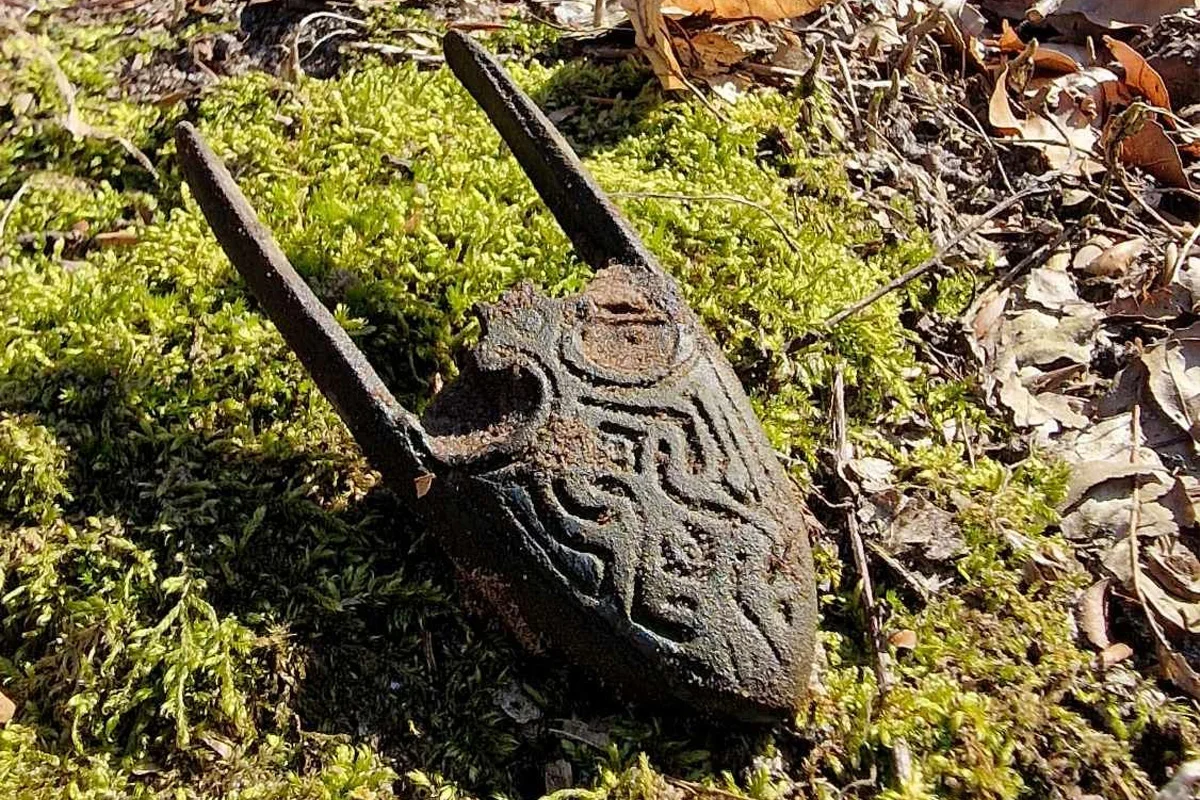A detectorist from the Iława Search Group has unearthed a rare medieval sword scabbard during a survey in a forest near the Polish town of Iława.
The discovery was made by Michał Młotek, who reported the find to the Elbląg branch of the Provincial Office for the Protection of Monuments.
“This is a unique and extremely rare find. Even more remarkable, it’s completely intact and beautifully decorated,” said Młotek.
According to a press statement issued by PAP, the object is a lower fitting of a sword scabbard that likely belonged to a warrior from the Baltic tribes of Prussia. Experts estimate that it dates from around 1,000-years-ago, a period when the region was part of Old Prussia.
Old Prussia first appeared in written sources during the 9th century AD, though it became more commonly used from the 11th century onward.
Unlike surrounding kingdoms and tribes, they were not a unified tribe under a single ruler or set of laws—instead, they were a loose confederation of around ten clans, each named according to its geographic location.
Młotek, a historian and expert in local heritage, explained that the fitting not only served a practical function for reinforcing the sword scabbard, but also served as a symbol of high status and power.
Another aspect that makes the fitting highly significant are the decorative elements in a Germanic design, indicating that it belonged to an elite weapon that emphasised the owner’s tribal role, social standing, or group affiliations within other clans.
Młotek said that he will strive to ensure that the scabbard fitting joins the collections of the Museum in Ostróda. “It would be the fifth scabbard from the early Middle Ages in our collection,” said Łukasz Szczepański, an archaeologist from the Ostróda Museum.
Header Image Credit : Michał Młotek
Sources : PAP





